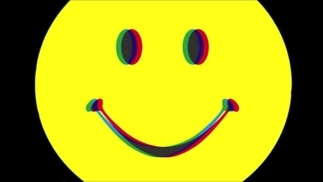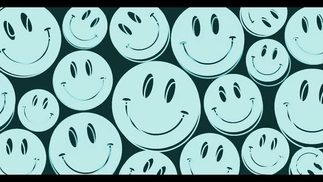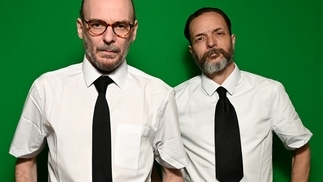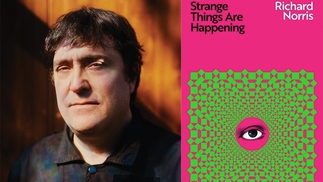MR C: THE ACID EVANGELIST
The man, the myth, the legend...
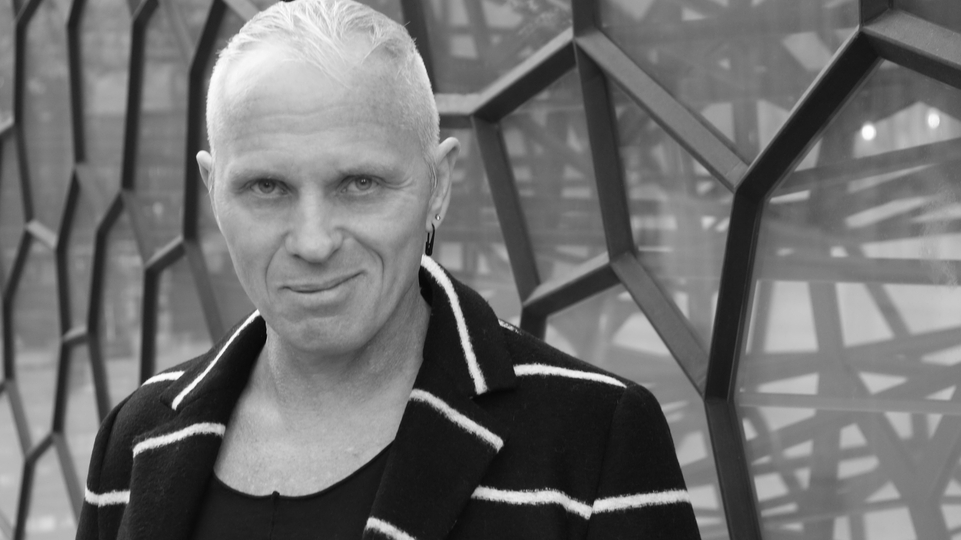
One of the great characters in global electronic music, Mr C is a visionary, artist, actor and activist. He’s been prominent in the underground for 30 years now — famously subverting the mainstream when rapping “Es are good” on prime-time telly when part of chart-topping act The Shamen — and has inspired and helped countless people with their careers in music, and rocked literally thousands of dancefloors.
Throughout those early ‘90s pop years he still kept one foot in the underground, throwing parties and eventually putting his money into acclaimed central London nightclub The End — which was pivotal to the capital’s nightlife for 13 years. Latterly he’s relocated to Los Angeles and currently tours the world with his Superfreq brand. Now releasing the ‘Incidents’ album, fuelled by his ongoing love of acid house, DJ Mag caught up with the acid evangelist for a quick chat — which naturally turned into a protracted proselytising session on life, the universe and everythin
Mr C is a positive force of nature. When DJ Mag speaks to him over Skype he is in Australia to play a number of gigs, including one for an old friend with whom he set up the pioneering internet radio station Gaialive back in the early ‘90s.
Naively, this writer had assumed that our conversation would last possibly 45 minutes, but in reality two hours pass by in a blur. At the end, it is impossible not to feel invigorated and excited and positive about humanity and the state of the world. This is despite the fact that Donald Trump has just been elected US president; that 2016 had taken countless great people in the music sphere; and that right-wing extremism — not to mention the murderous activities of Islamic State — is increasing across Europe.
In the face of all of this bad news, Mr C still manages to shine through like a positive beacon. He manages to marry new age spirituality with psychedelic dance music, American-style positive thinking with the cheeky hustle of London’s underground house music.
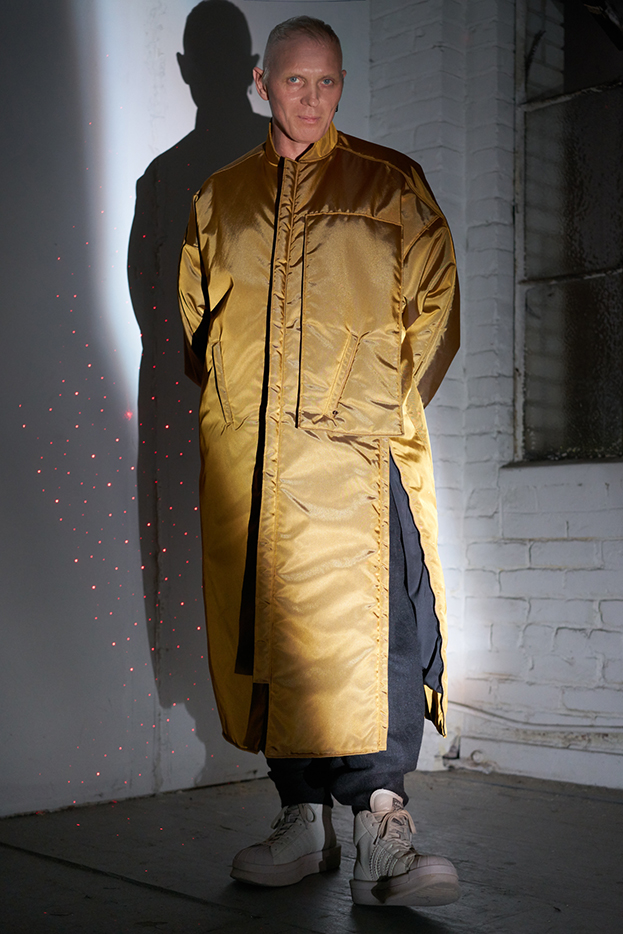
As our conversation unfolds, it becomes clear that all of these characteristics are not just connected but inextricably linked. First of all, DJ Mag asks how he feels about living in LA, where has been based for the past nine years, in light of the US election result. “LA is amazing, the quality of life is second to none and I have no plans to return to London anytime soon. If anything, the US needs me even more than ever now,” he answers, emphatically.
“You see, I don’t get all those Americans saying that they are going to leave. What they should really do is move to a red state and get to know and try to understand the people who voted for Trump.”
He says that he was not surprised by the outcome of the election, and even saw it as necessary. “We’ve had the same bullshit since Reagan and Thatcher. We are moving on as a race and there needed to be change. Change is good, and people need to have an option,” he says.
So does he hold much faith for the next four years in America? “It’ll be an awful presidency, but this had to happen at some stage otherwise we are going to be controlled by the same 200 families across the world,” Mr C believes, before adding: “Look, I’m a leftie, but we have been scared off by the elite and now the idiots have come out of the woodwork.”
Despite the somewhat bleak prognosis, he remains, as ever, an optimist and it’s hard not to feel influenced by his worldview and infectious manner. In spite of the dark rise of fascism, which he says will include the election of Marine Le Pen in France, he believes in humanity’s inherent good and is confident that people will ‘stand up and face down’ such developments.
Mr C, real name Richard West, points to the fact that the age of Aquarius is upon us (this writer was unaware that it had begun back in 2011), and that it brings with it positive energy, even if it is sometimes hard to notice.
In any event, West will remain in the US, where he is now a legal resident. The UK DJ had originally moved Stateside to pursue a career in acting and before he moved, he attended acting classes in London for six years. “I wanted to learn the art-form properly, to bring it to life,” he says. “I see acting as part of my future. I am an artist, a performer, and acting is a very important part of me being an entertainer.”
Richard recently had a cameo role in a short movie called Desire, which also featured Sophie Kennedy, Johnny Knoxville and Matthew Gray Gubler, and he says that he has a number of other movie-related plans.
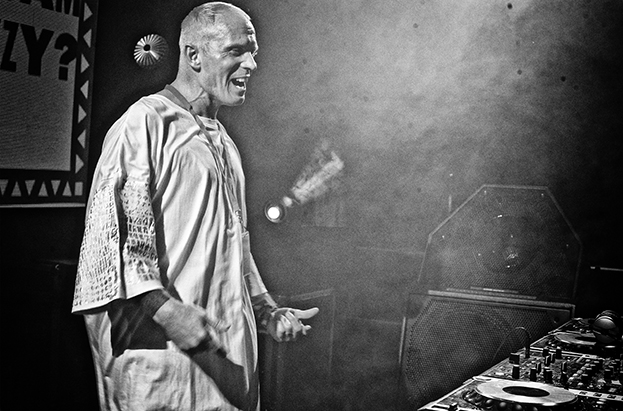
It seems, however, that he cannot escape from the underground music that he has been synonymous with for close to three decades, and this relationship is consolidated once again with the release of his latest artist album, ‘Incidents’.
“I just can’t pull myself away from music,” he affirms in the same passionate tone that he had when this correspondent first interviewed him twenty years ago. “This album I’ve made, it’s my best in ages. There is no way I will ever let go — I am contributing to a sound, to something that will never die. I feel that I still have a lot to say. I feel that it is my duty to respond to things that are going on, and that’s not going to change.”
If he had been born twenty years earlier — he celebrated his 50th birthday last year — Richard would almost certainly have belonged to that group of LSD-fuelled, counter-culture figures that included Kerouac, Ginsberg and Hunter S. Thompson. The message and the approach are largely the same — challenge convention, question authority, and do so in the embrace of psychedelics.
Nonetheless, West also admits that ‘Incidents’ is “an ambiguous album”, one that documents things “that happen under the influence of psychedelics in a club”. These themes are narrated against the backdrop of a pulsating acid house soundtrack that also takes its cues from ska, dub and underground techno.
The album starts with the teased-out acid of ‘Entry Search’, about which C says: “The working title was ‘Entry’. It’s about when you arrive at a club and if you are a drug user, there is this anxiety that you might get stopped. I also wanted it so that the track would feel like an entry into psychedelics, and the anxiety that goes with getting into something new.”
A similarly warped, teased-out acid sound prevails on ‘Civil Dose’. The title is an anagram of ‘acid is love’, but it also serves as a subtle reminder to his audience not to go ‘too mad’.
“There is this practice now of micro-dosing, where you take such a small amount of psychedelics that you can go through a working day and your awareness is off the scale,” he explains. “There are people who want to go to the domain of the ideas, having the most amazing day ever. You are not stuck with problems but are finding solutions. As someone who meditates regularly, I live life in the moment,” Richard adds in a fittingly stream-of-consciousness way.
However, he also warns about the dangers of excessive behaviour and says that he knows too many people who either “lost their marbles” or who are “no longer with us”. “There comes a point where you want to be a part of life; I take psychedelics to be aware and share with my community,” he says.
‘Acid Fever’ is pertinent to today’s underground sound and is, its author feels, reflective of a renewed interest in acid house, albeit now in a more woozy and psychedelic form than before. Such resurgences are cyclical and the last time an acid wave surfaced was roughly a decade ago — at that time it focused around releases on Rz, and Uwe ‘Atom Heart’ Schmidt’s peerless ‘Acid Evolution’ compilations.
“The whole LP is an acid album — it’s got melodies, one foot firmly stuck in the future and a nod to the past. My label, Superfreq, is an acid label, a psych label, that’s where it’s at. Even Seth Troxler is doing acid nights. Acid is back, but in a more psychedelic, futuristic way,” Richard believes.
The centre-piece of ‘Incidents’ is the single ‘Stand Up’. Like the other releases that propelled Mr C from the underground to the mainstream, it is insanely catchy and features its author on vocals. He says that it is “a ska tune made electronic” and in the fine tradition of that genre, it is also a protest song — innately political. Like many of his peers, he feels that his culture is under attack, and this is his response.
“I wanted to do a song that is political, that stands up to The Man,” he says. “This thing happened with Fabric — they took away our disco. I did as much as possible for the Save Fabric campaign because it was about them not taking away our culture, “ he says.
“This is neo-liberalism in action; it is taking away our culture and our civil rights,” he continues. “The same thing that happened to Fabric happened with The Arches [in Glasgow] and now in Argentina there is a law where clubs cannot play electronic music. It’s happening in Sydney with the lockout laws. The mistake they are making is they think that this is just people on drugs, but we will stand up for what we believe in. They are doing it everywhere because of the locations — they are expensive, and the developers pay off the authorities. This is about pounds, shillings and pence.”
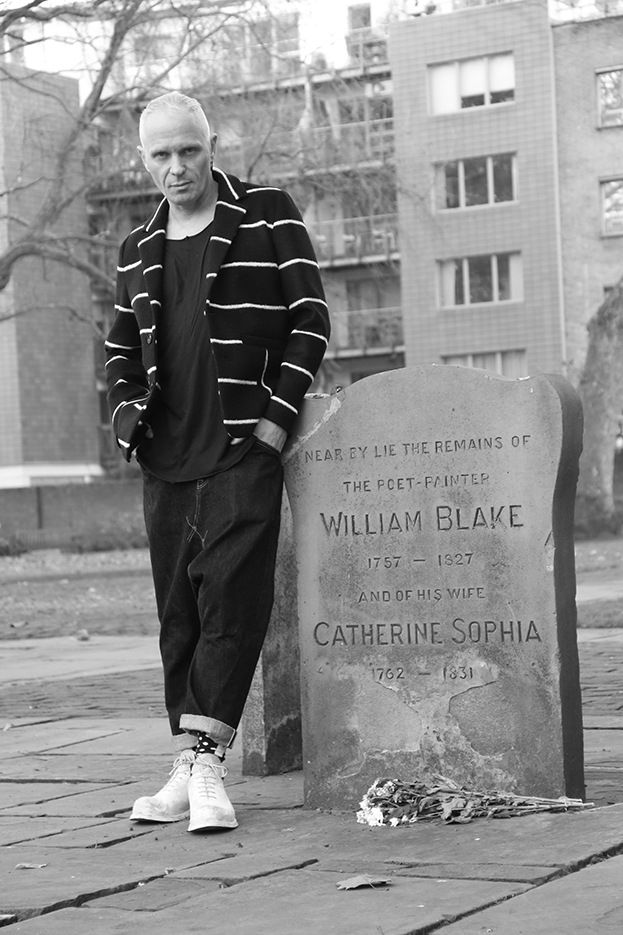
It’s no surprise that Mr C does not believe closing legitimate venues will stop people from consuming illegal drugs. If anything, he feels that such a crackdown will only put more people at risk as they will attend illicit warehouse parties with no regulations.
‘Do It For Me’, which rides insistent Chicago percussion and gurgling 303 builds, is a full-on acid track. Richard explains that it has a dual meaning — on one hand it is about sex and interaction, but like much of this album, has a social message.
“I’m saying let’s look out for each other, let’s be mindful,” he says. “Let’s look after the poor, the needy. There is only one ‘consciousness’ and we are all part of that, so we need to start looking out for each other.”
He feels that the sentiments expressed on this track are in stark contrast to some of the behaviour he witnesses in clubs, particularly in relation to “people with their faces stuck in their smartphones — it’s a form of narcissism”.
‘Do It..’ also marks the start of the album’s swing towards the dancefloor, and precedes the brilliant ‘Disco Rebellion’. Originally titled ‘Oh Ivan’, its inspiration was an Ivan Smagghe DJ set in LA, during which Richard admits: “I danced my socks off”. “It has an Italo bass and the old school, electro beats, but it is also about us as a community resisting the authorities’ attempts to take our disco away.”
‘Shape Your Dreams’ addresses more esoteric matters; according to West — it is about being at one with ‘the absolute’. “You are consciousness,” he states, emphatically. “If this reality is your illusion, then you can change it and share your dreams with others.”
This sentiment steers our conversation down an esoteric path. Richard believes that people are put on earth with the main goal of achieving happiness. He is also convinced that when he passes from this world, his soul will remain. To achieve the goal of being happy throughout his life, he says that he has worked hard to shape his own dreams.
“I come from a working class, single-parent background, but I changed my attitude. When I gave up my milk round in 1987, I said to myself, ‘I am a DJ’. It may sound cocky, but if you say you want to be something, you end up sounding like a wannabe,” he believes. “If you visualise it then you have already achieved it, but if you have fear, you will fail. People need to educate themselves, put themselves in that position.”
From positive thinking to edginess, ’Raid’ is the sound of “shit going down”. However, like all of the tracks on ‘Incidents’, it has a dual meaning and Richard says that it is about the community he is immersed in hijacking their culture back and showing that the community is united. “It is political, but it is about unity — dance music has shied away from being political and has been about peace, love and chocolate mousse. Because we have appeared that way, some people have tried to take it away, but now we are saying ‘Fuck that, let’s take it back’.”
This last statement feeds into the theme that keeps coming back through our conversation — each individual’s ability to effect change. It also informs ‘Master Of The Universe’, an ode to self-empowerment set against the backdrop of what Richard calls a “proper dancefloor layer”.
A similar message underpins ‘Ripple Effect’, with West observing that “every single thing we do has ripple effect. We start with ourselves, make ourselves caring, compassionate and loving. If every person behaved like this, the world would change — we have that power.”
The album’s final track is ‘Quick Exit’; inspired by leaving a venue promptly when the police are conducting a raid, it also documents Mr C’s belief that one should depart this life with a bang rather than a whimper. “When I go out, I want it to be with my boots on, blowing a whistle,” he laughs.
‘Incidents’ took five months to write and record in Noel Jackson’s studio in LA (Jackson is one of the partners in Superfreq). Aside from the album, the other big musical development in Mr C’s world is the re-launch of Superfreq. With releases due from Jay Tripwire, as well as albums from Noel Jackson and David Scuba — the other Superfreq founder — the label has signed a P&D deal with Juno and plans to keep vinyl at the heart of its activities.
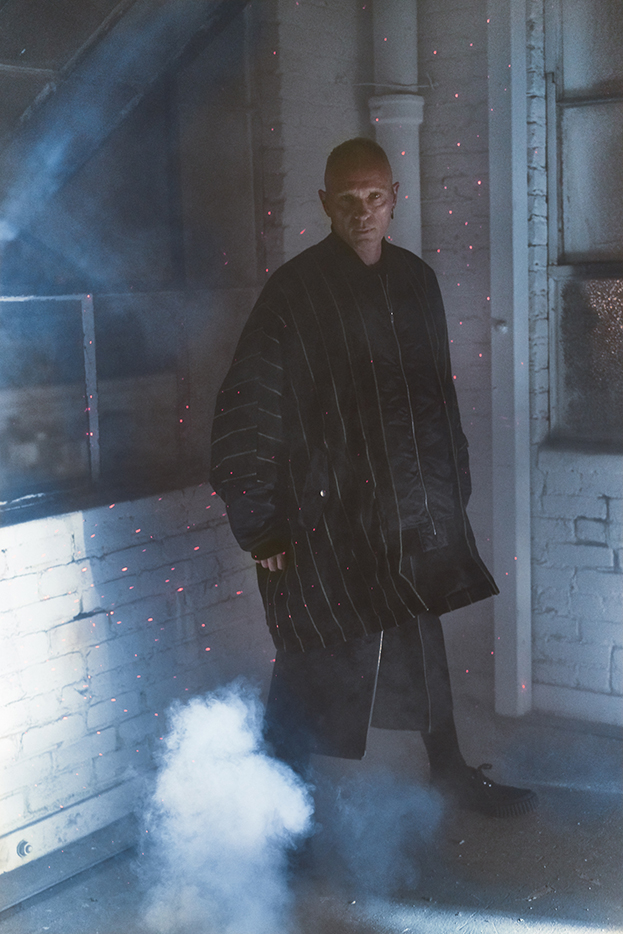
“I didn’t want Superfreq to be just another digital label,” Richard explains. “Everything I have earned by being part of the industry has always gone to supporting the new generation. When I had hits with The Shamen, I didn’t buy a house or a fancy car. I put all the money into Plink Plonk and The Woodshed studio, and then I put my money into The End. I didn’t make any money for ten years on that,” he says.
Similarly, the newly launched Superfreq label will act as a platform for new artists. Its owner says that he wants to put a focus on artists from countries like Poland and Argentina, and to release artist albums. “That’s why I am doing vinyl; I want proper artist albums that are tangible pieces of art,” he explains.
Like his previous label-related ventures, Richard re-invests the money from other sources — in this case his club gigs — into Superfreq. Even though, by his own admission, he is a “2K rather than a 10K a night DJ”, he says: “I don’t give a fuck about money. I travel the world to play the music I love. This is about coming together to celebrate the music and culture that is my way of life.”
Away from the decks, West also draws on his life experiences in another way. Over the past four years, he has been providing 12-hour workshops to people in LA in mediation and ‘creative visualisation’ - or, in plain English, providing people with guidance to be happy.
“I was turned onto the power of positive thinking when I was 17, and I share information to make other people happy. I feel it is my duty to help people. My own guru, John Osborne Hughes, has been a huge help to me, and the workshops I run are based on John’s teachings,” Richard explains, adding that he is working on a book about spirituality with publisher Hay House.
It all sounds like a long way from Mr C’s heady days as owner and resident DJ at The End. Given that we have been discussing happiness and fulfillment, does he feel that being in London and running a club are missing from his life?
“I’m in London nearly every month, and I don’t miss the club. It was the best club in the world — friends, communities and families were made there and the legacy of The End is not gone,” he answers, without pausing for breath. In any event, Mr C is looking to the future, and not dwelling on the past.
“I’m 50 now, so I might have another 20/30 years,” he says, sounding more pensive now than in the previous two hours. “In my 50 years, I have lived more than most people have in a few lifetimes — with the time I have left, I have to build a legacy.”
It sounds like ‘Incidents’ is continuing that foundation.


